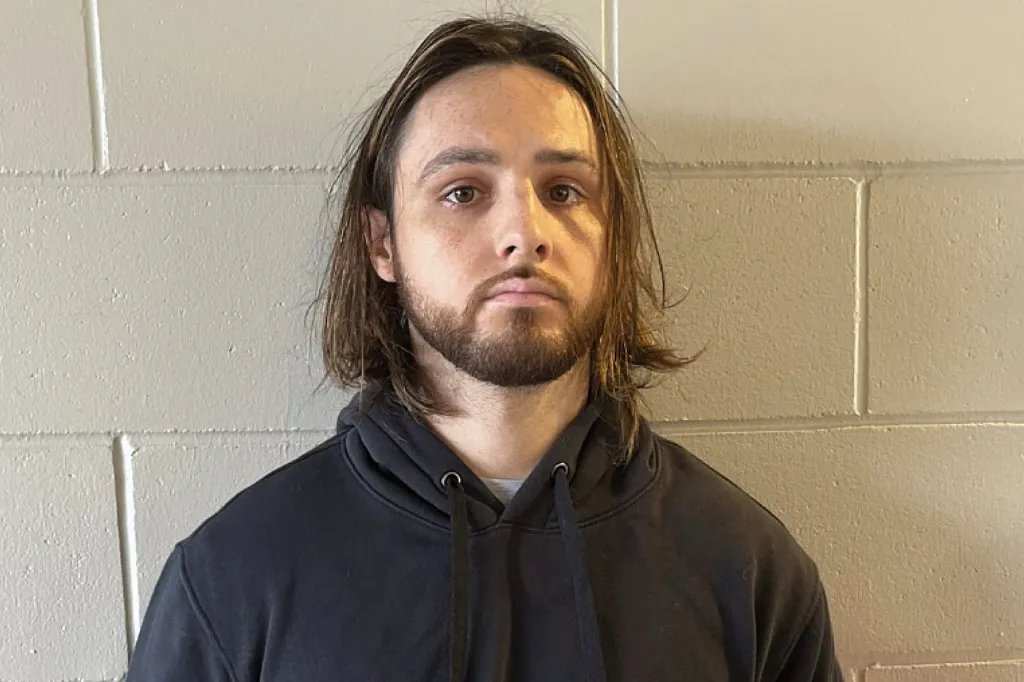Man Accused of Igniting Deadly California Wildfire Faces Potential Death Penalty
In a courtroom in Orlando, Florida, a hushed tension enveloped the air as Jonathan Rinderknecht, a 29-year-old accused of igniting one of the deadliest wildfires in California history, was presented to a judge. Rinderknecht, shackled and dressed in a red jail jumpsuit, exhibited a visible detachment, often staring down at the ground as prosecutors laid out a harrowing case against him: a devastating blaze that resulted in twelve fatalities and obliterated entire neighborhoods in the Pacific Palisades.
The Fire That Consumed Lives
On New Year’s Day, the Pacific Palisades fire erupted, quietly beginning a catastrophic sequence of events that would ravage a landscape and forever alter lives. Though Rinderknecht is currently charged with property destruction by means of fire—a crime that carries up to twenty years in prison—prosecutors indicated they may seek the death penalty based on the scale of the destruction and loss of life.
Psychological Profile of a Suspect
During the hearing, Special Assistant U.S. Attorney Rachel Lyons painted a troubling portrait of Rinderknecht. Described as a “loner with a despondent view of the world,” Rinderknecht’s mental state came under scrutiny. “He often turned to ChatGPT for existential inquiries, seeking affirmation on morally ambiguous acts,” Lyons noted, referencing an alarming pattern of engagement with AI before the fire.
In one incident, while calling 911 to report the emerging fire, Rinderknecht reportedly typed into ChatGPT, “Are you at fault if a fire is lit because of your cigarettes?” This remark casts a shadow over his intentions and raises profound questions about his psychological stability.
The Role of Technology in the Investigation
As investigators delved deeper into Rinderknecht’s psyche, they uncovered a series of troubling online interactions. In November, he allegedly described a feeling of liberation after burning a Bible. “It shows a complex relationship with both fire and destruction,” remarked Dr. Emily Sandoval, a forensic psychologist specializing in criminal behavior. “This wields significant implications for risk assessment in similar cases.”
- Patterns of Behavior: Engaged in destructive dialogues online.
- Emotional Indicators: Experienced relationship breakdowns and social isolation.
- Potential Escape Plans: Alluded to fleeing the U.S., which indicated premeditation.
Investigators further revealed that lab tests conducted on the potential source of ignition—a cigarette—were inconclusive. “No test led to sustained combustion, raising significant doubts about his assertions regarding the fire’s origin,” explained Lyons, underscoring inconsistencies in Rinderknecht’s narrative.
Familial Relationships and Escalation
Complicating matters, familial interactions suggested an increasingly volatile state. Rinderknecht’s altercations with his sister and brother-in-law resulted in police interventions, with reports of threats to burn down their home. “This could reflect deeper emotional issues,” articulated Dr. Markus Alan, a criminal behavior expert. “When familial relationships deteriorate, the risk of aggressive actions can escalate dramatically.”
Even as his family expressed concerns, they remained in a complex web of support, attending the hearings and offering emotional backing with the promise of supervision. “It’s an internal struggle,” said Rinderknecht’s public defender, Aziza Hawthorne. “He has a support system—but also a troubled history.”
Judicial Decisions Amidst Growing Concerns
The decision to deny Rinderknecht bail was not taken lightly. Magistrate Judge Nathan Hill outlined the severity of the charges and the potential for future risk. “The evidence paints a broader picture—your presence at future hearings cannot be ensured,” Hill remarked, reflecting the court’s apprehension regarding Rinderknecht’s mental state and possible flight risk.
As the jury remains poised to hear his case, the ramifications extend far beyond the courtroom. Lives have been irrevocably altered, families shattered, and communities now face challenges that go beyond the physical destruction left in the wildfire’s wake. With every piece of evidence unveiled, the weight of the tragedy looms overhead—an algebra of grief, desperation, and profound loss.
The Road Ahead
As Rinderknecht awaits his next court date, the judicial system’s handling of his case will be scrutinized not just for its legal implications but for the broader societal meanings of culpability and mental health in criminal acts. With more hearings scheduled, there remains a lingering unease within the community—a consciousness of the fragility of safety amidst a landscape fraught with environmental peril and human behavior.





